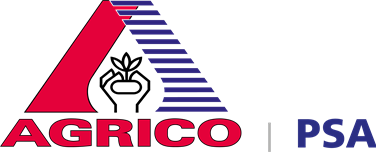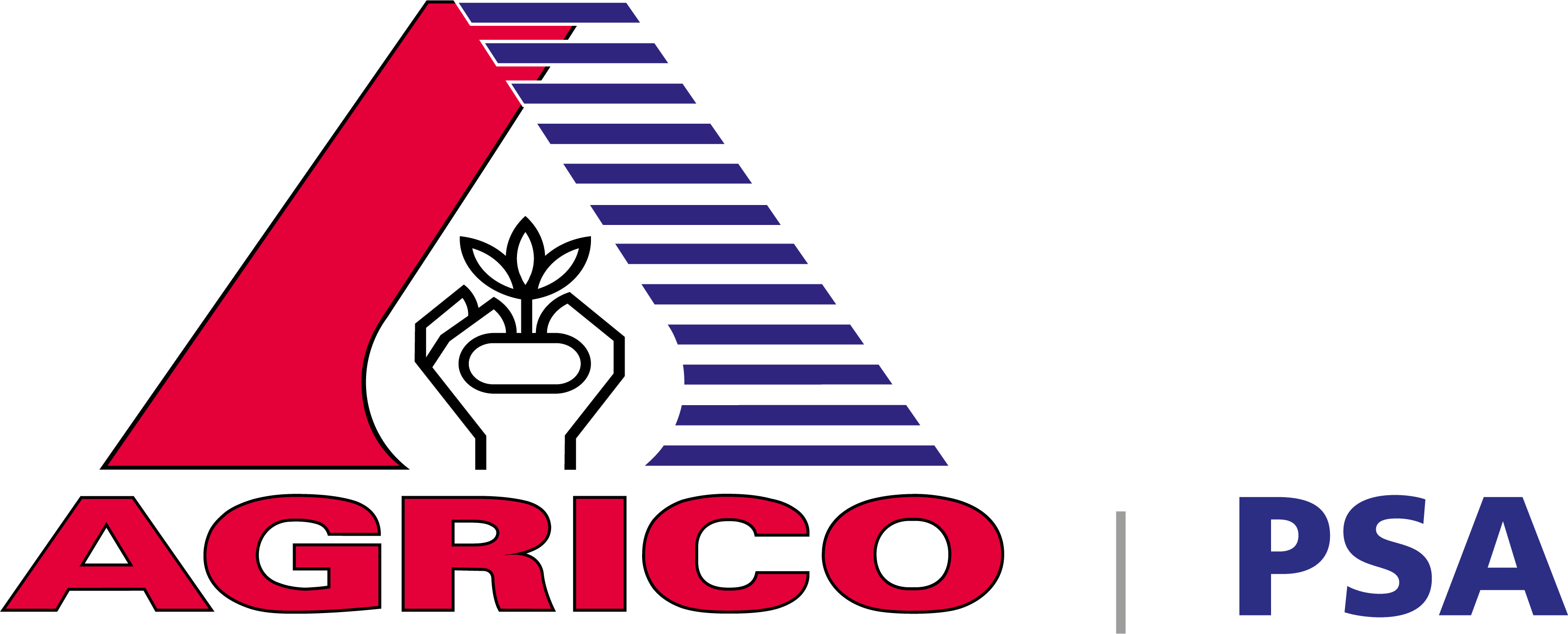KENYAN POTATO
VALUE CHAIN
Certified seed potatoes
Grown in Nakuru Kenya
Used all over Eastern Africa

Food security and potatoes
Most sustainable crop
Maize has been Kenya’s main crop for decades. However, it has also been under constant threat from disease ever since. This has occasionally resulted in massive yield losses and jeopardised food security in Kenya. Hence, around 2008, the Kenyan authorities decided to find a substitute for its dependency on maize and chose potato.
The reason for choosing potato is the fact it is one of the most sustainable crop providing the highest number of calories for the lowest volume of water and land area when compared with all other crops. In addition, its characteristics make it an excellent crop for crop rotation.
Another reason for choosing potato as a substitute for maize is its high and broad adoption rate in Kenya. The entire Kenyan population – both the wealthiest and the poorest – consumes potato and in about 80% of each dish potato is included. Potato already was the second crop in Kenya after maize.
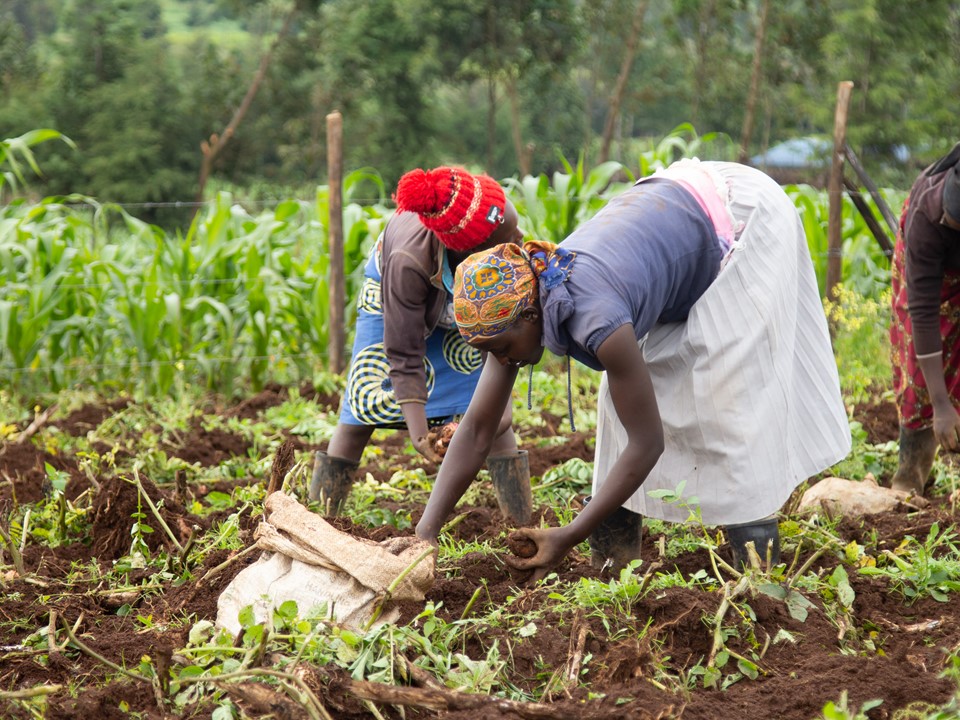
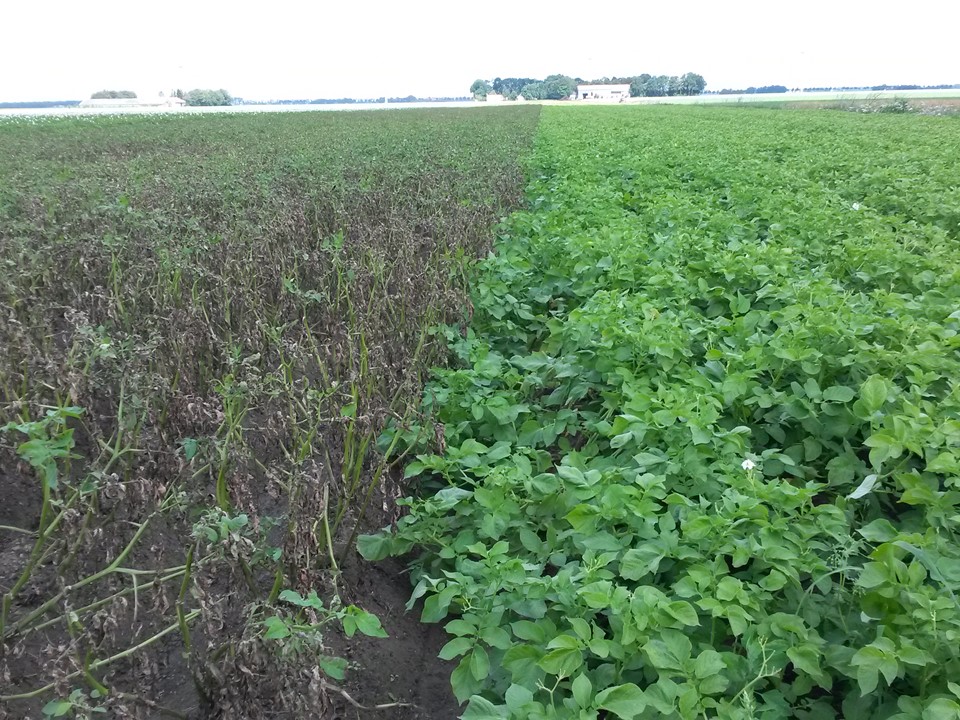
Inefficient potato value chain
Unfortunately, realising Kenya’s “potato food security policy” was challenged by the structure and characteristics of the Kenyan potato sector. The shortage of certified seed potatoes as input for farmers was a first large hurdle to tackle.
As a result of this shortage, farmers – many of which are smallholder farmers – were forced to use low-quality inputs, automatically resulting in poor yields. In addition, ventilated cold storage capacity was also underdeveloped. The combination of poor availability of certified seed potatoes and limited modern storage infrastructures resulted in high (post) harvest losses and in an inefficient and unstable potato value chain.
Potato and the Netherlands
Over a period of more than 100 years, the Netherlands has developed a strong potato sector and gained an internationally recognised position of leadership. The Dutch potato sector is a market leader for many aspects such as breeding new varieties, scientific knowledge supporting varietal development, potato production and processing, the export of seed and ware potatoes and the provision of machinery and consulting services. For example, the Netherlands is the world’s largest exporter of seed potatoes; approximately 55% of exported certified seed potatoes (800,000 tonnes per year) and an estimated 55% of the (improved/high-yielding) potato varieties used globally are of Dutch origin.
Kenyan and Dutch policymakers agreed upon a multi-annual “potato” development programme and realising Kenya’s food security has been its ultimate goal. The first phase of this programme was initiated in 2010. The biggest hurdle in creating a sustainable potato value chain - the lack of modern seed potato varieties – was identified as the main priority. Hence, the first step in the sector development was an agreement to open the Kenyan market to modern foreign potato varieties: varieties that have proved their added value in almost all geographical markets. In addition, a programme was developed to transfer knowledge and build capacity at Kenya’s certifying body (KEPHIS).
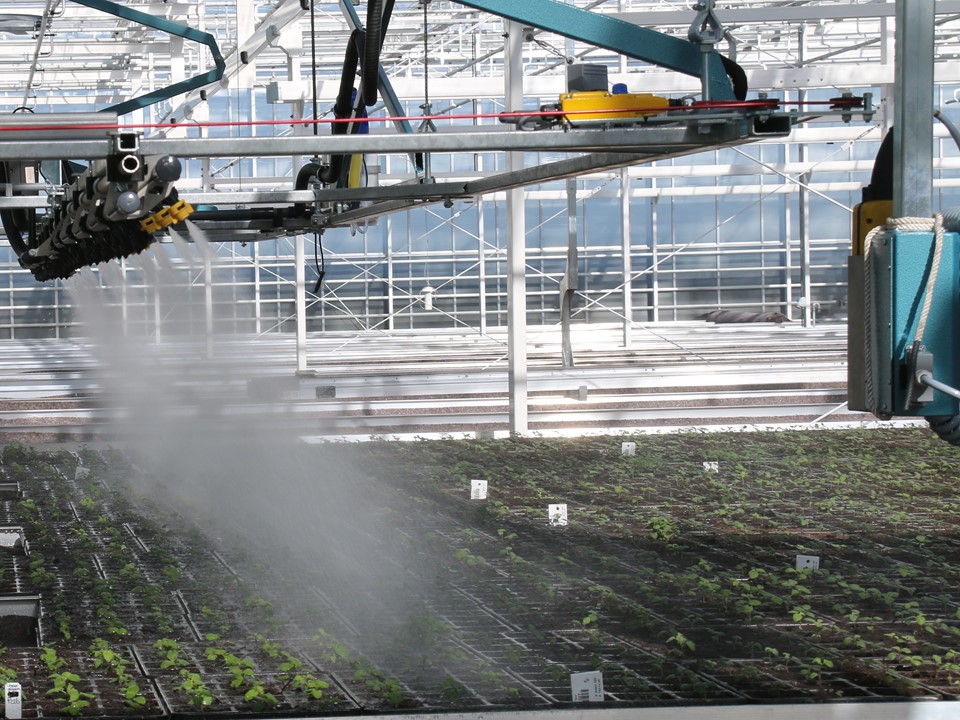
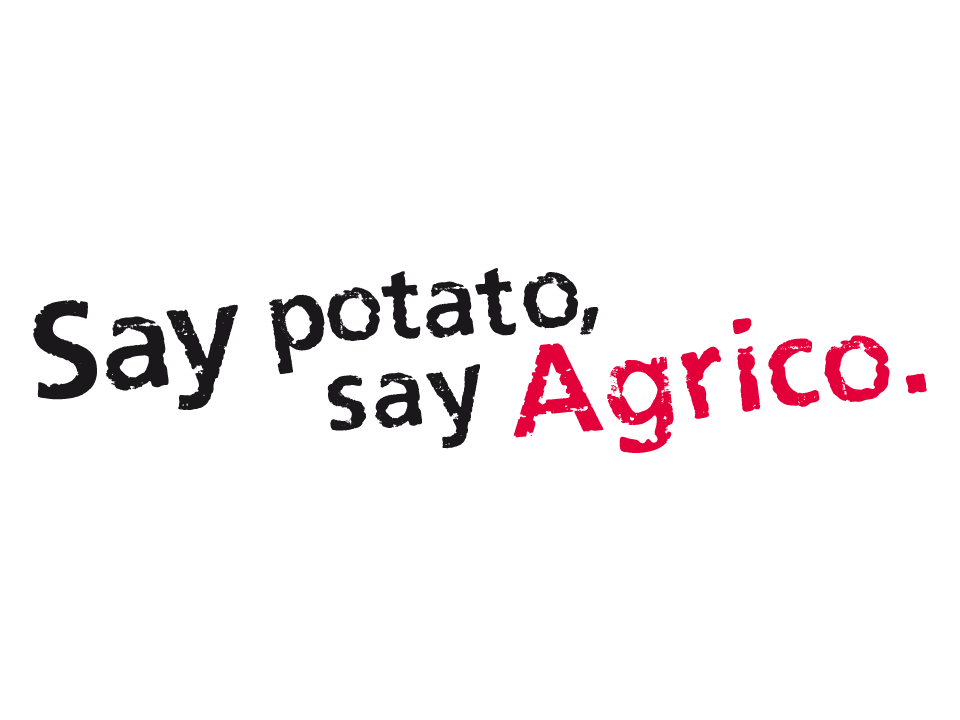
Say potato, say Agrico
Agrico is a world leader in new potato varieties, a powerful cooperative and a force for innovation within the potato sector, creating, strengthening and increasing the sustainability of potato value chains. It delivers strong and healthy potato varieties to destinations around the world that are perfectly suited to local conditions and markets. Agrico develops, produces and markets high-quality seed and ware potatoes, cultivated by both conventional and organic methods. From the very beginning, Agrico has been actively involved in the potato development programme of the Kenyan and Dutch authorities.
Agrico is active in over 80 countries worldwide. Its market entry strategy is always tailor-made to the local conditions and it ensures the most important stakeholder – the local farmer – experiences a significant income improvement. This means Agrico can deploy a large variety of potato production systems for each region that, for example, varies from local mini-tuber (or similar) production systems, local seed potato production systems up to seed potato exports.
99.6% Kenyan value chain
The Kenyan situation is characterised by a large number of farmers – many of which smallholders – producing potatoes from various locations and farming under a relatively high level of disease pressure. The fragmented Kenyan market means that a system based on seed potato exports must overcome challenges. The high presence of diseases in Kenya makes production systems based on mini-tuber (or similar) technologies less suitable. It will result in either affordable seed potatoes of poor quality or good quality seed potatoes that are too expensive for farmers to purchase. Moreover, this technology also leads to long and risky production cycles and therefore achieving the right scale and food security takes (too) long, if feasible at all. In summary: neither one of these production systems will result in a sustainable potato value chain nor will it provide a sustainable increase of Kenyan farmers’ income.
Production systems based on importing relatively low numbers of top quality seed potatoes, multiplying these locally and distributing these to Kenyan farmers – who in their turn will use these to produce large quantities of ware potatoes - is seen as the best solution to achieve Kenya’s food security policy. It results in large quantities of affordable and excellent quality seed potatoes in a relatively short period of time. Moreover, it will boost Kenyan farmers’ income. In addition, this production system results in a “99.6%” Kenyan value chain in which all Kenyan stakeholders are the largest beneficiaries.
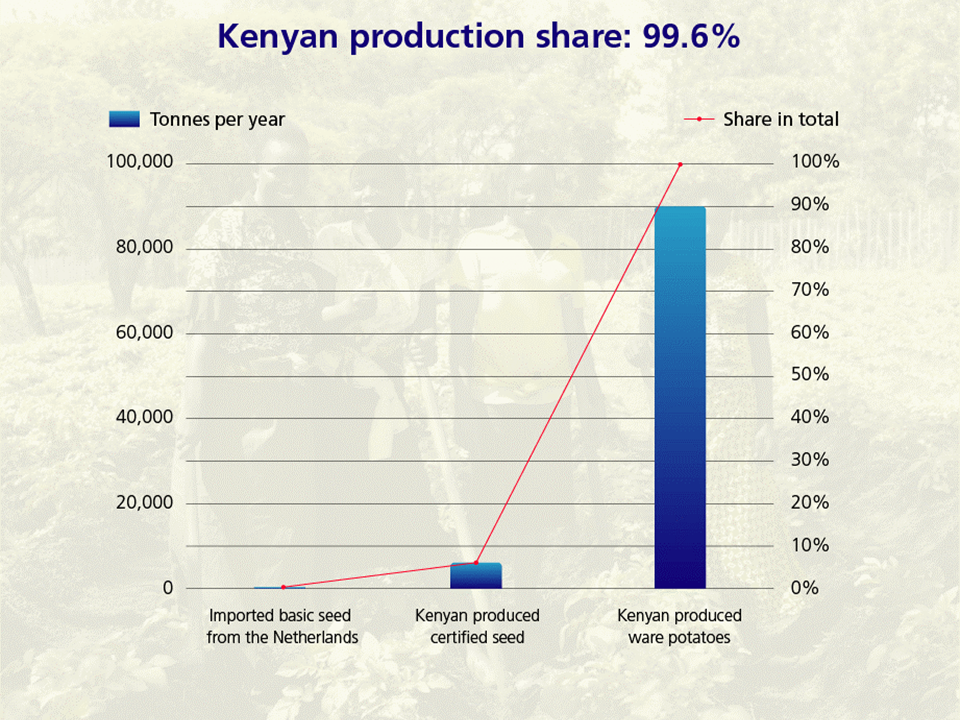
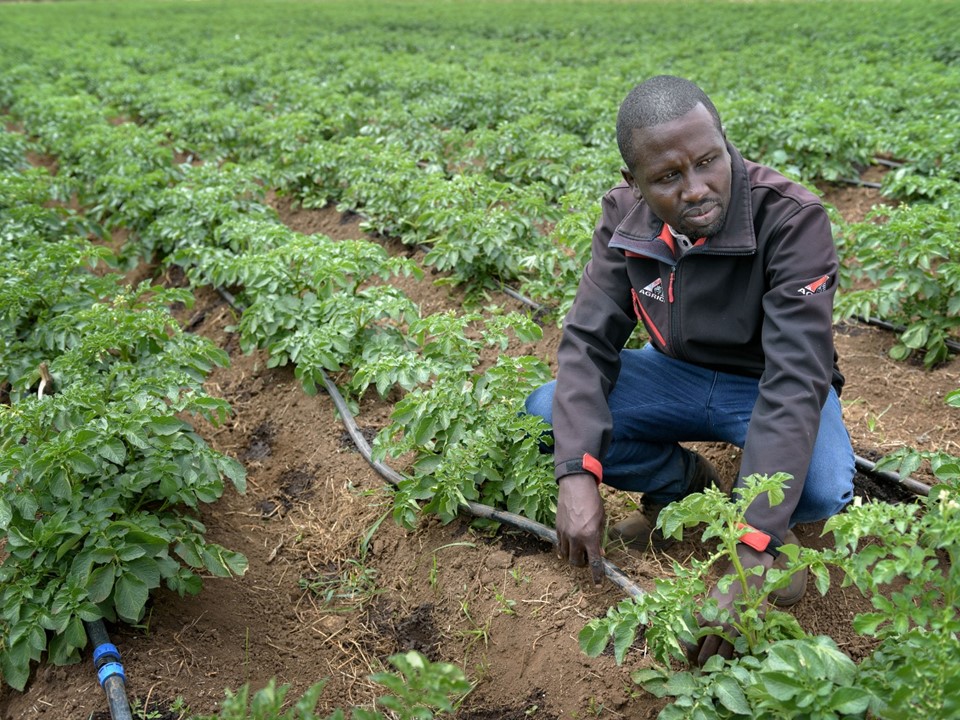
Committed to collaboration and partnership
As a cooperative, Agrico is committed to collaboration and partnership. It believes collaboration is the best guarantee for excellent growth and achieving the highest quality.
In Kenya, Migotiyo Plantations Limited (“MPL”) was the best matching and most professional partner. The agreement was made to establish a Kenyan Joint Venture that would import, multiply and distribute seed potatoes on a large scale in Kenya: Potato Services Africa (“PSA”) was born. Since 2016, PSA has been investing in a state-of-the-art infrastructure – including in ventilated cold storage, handling and field equipment and drip irrigation – enabling PSA to supply seed potatoes to Kenyan farmers all year round. In view of the fact that PSA’s goals seamlessly matched Kenyan and Dutch development policy goals, the Dutch government decided to co-finance PSA during its start-up phase.
Farmer ecosystem
From the very beginning, PSA has been aware that providing Kenyan farmers access to certified seed potatoes was only one (important) piece of the puzzle. Yet in order to create a sustainable value chain, a “farmer ecosystem” needed to be created, providing collaborating farmers access to:
- Certified seed potatoes
- Crop protection
- Crop nutrition
- Markets
- Finance
- Technology
- Knowledge
Hence, from day one, creating and scaling up this farmer ecosystem has been – and will continue to be – the centre of our potato value chain development strategy. Naturally, PSA cannot do this by itself and therefore we have been collaborating with various strategic partners that share our holistic view.
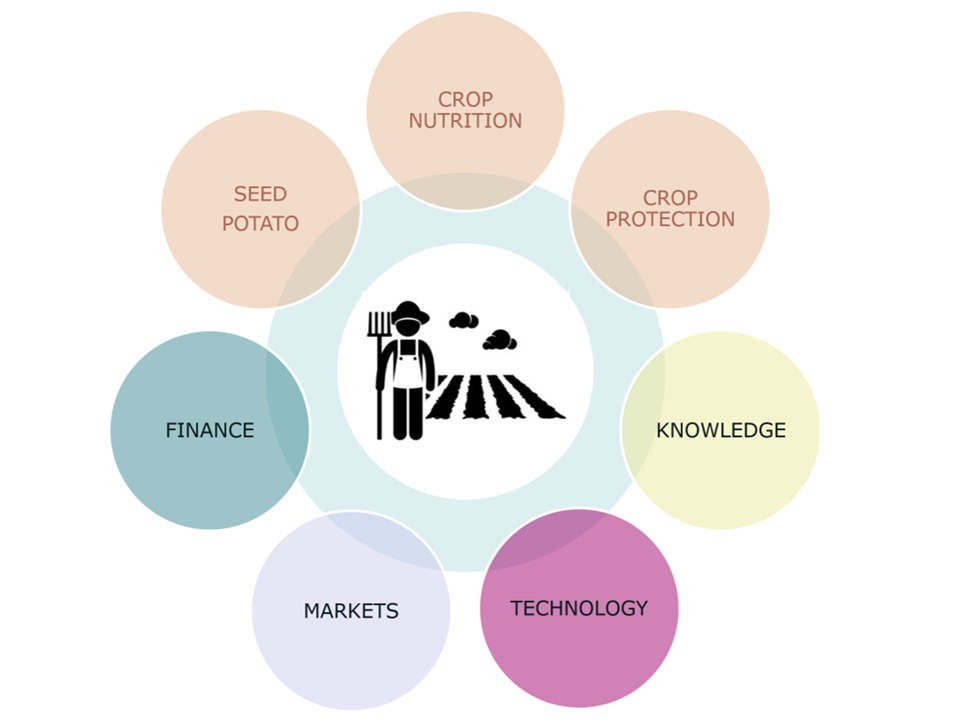
Boosting farmers’ potato income
It goes without saying that all strategic partners acknowledge boosting farmers’ potato income to be key in our farmers’ ecosystem and they act accordingly. By realising this, we directly impact various sustainable development goals and we make a significant contribution to Kenya’s Big Four Agenda.
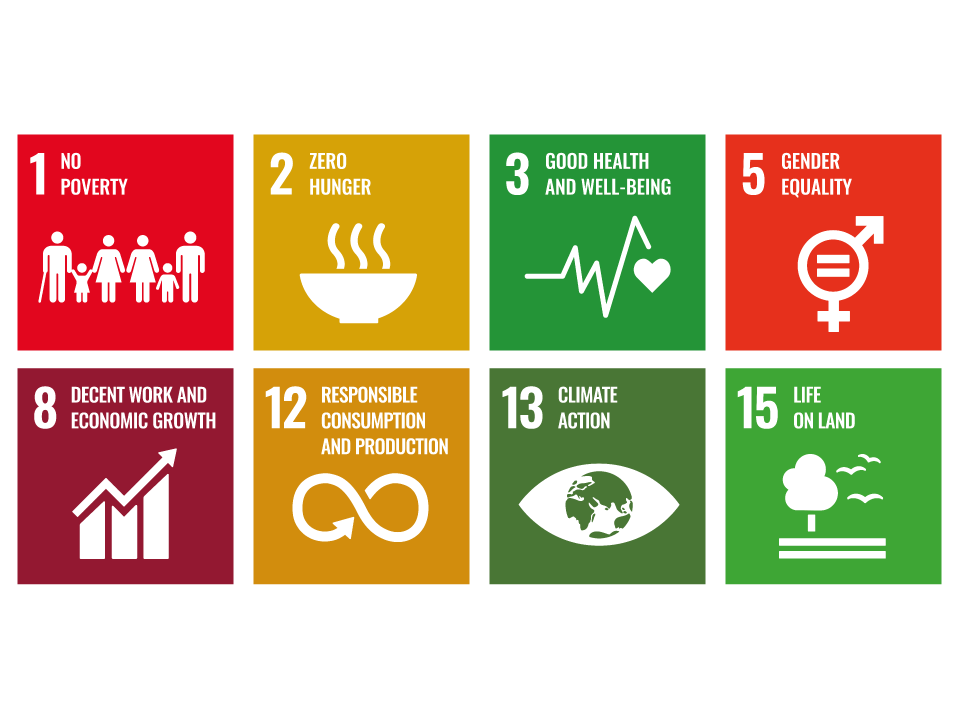

Agrico contributes to a healthy potato value chain!
We support the sustainability and further optimization of successful potato value chains that are already in place.
We do this by working together with other input partners who provide high quality solutions for soil testing services, crop nutrition advise and crop protection programs. But also by connecting farmers to buyers, to service providers for mechanization or financing and by offering a lot of training.
The farmer remains the core of our focus; my colleagues and I are therefore ready to help you.
